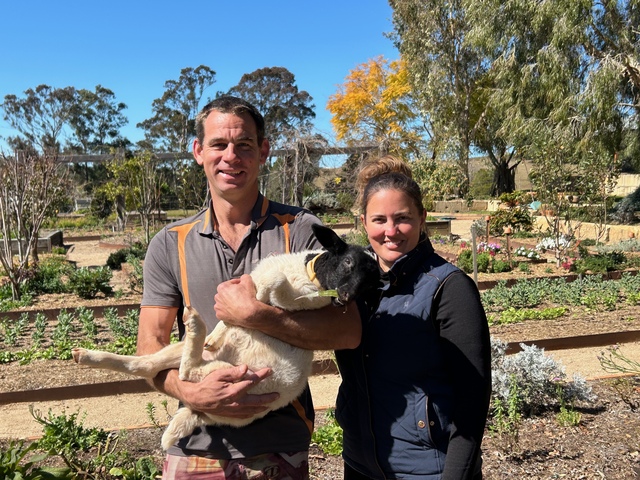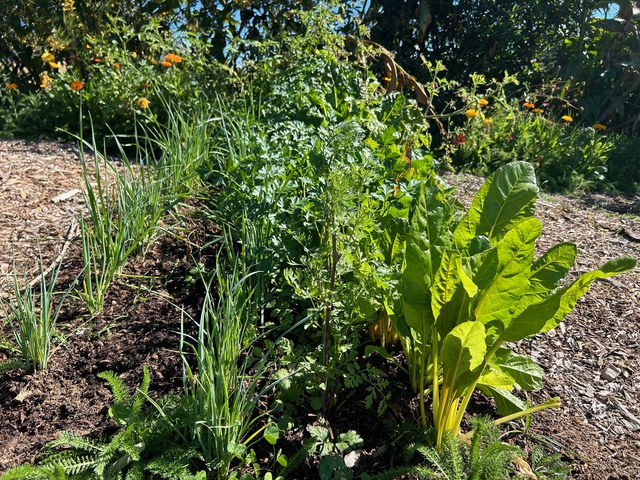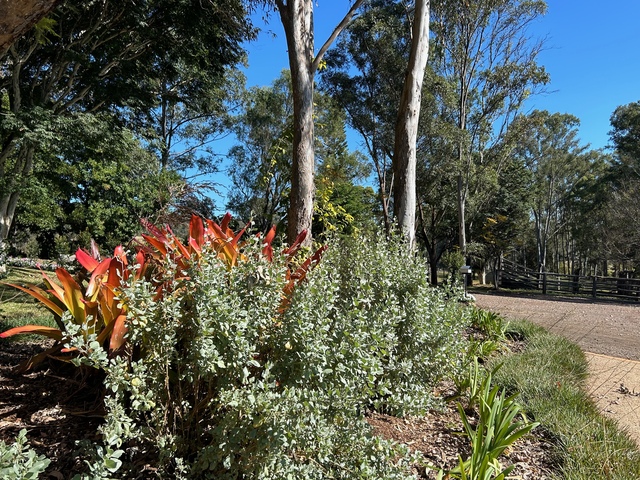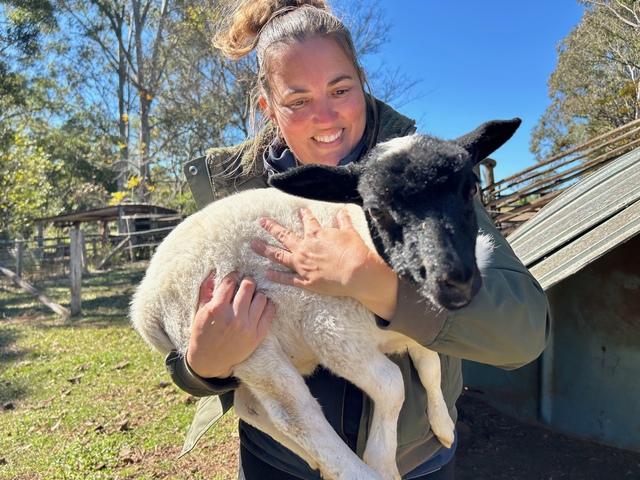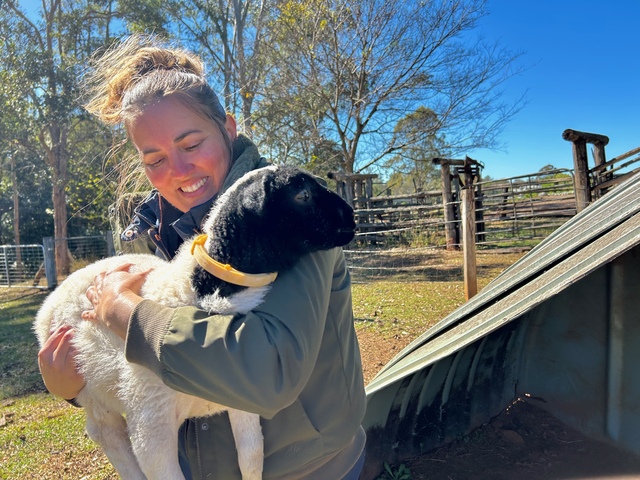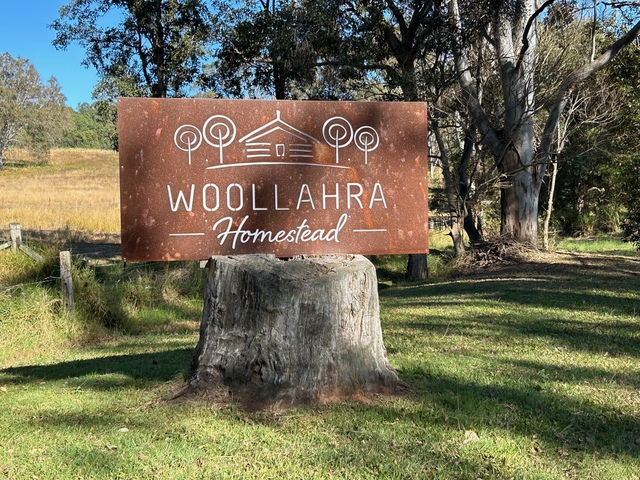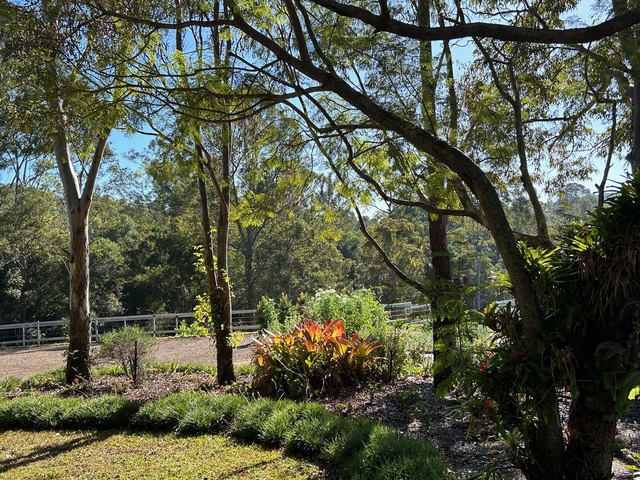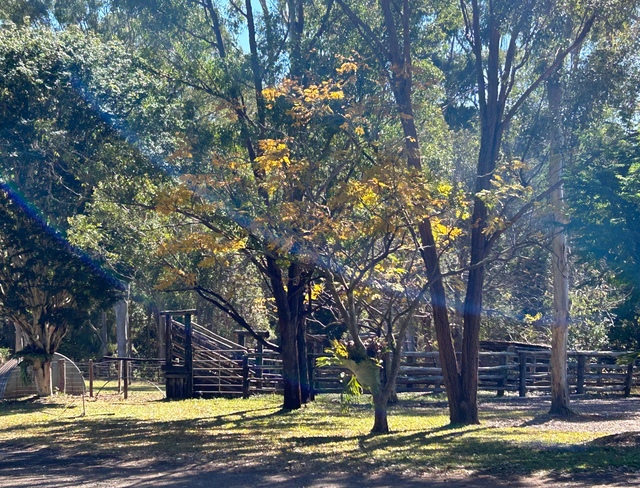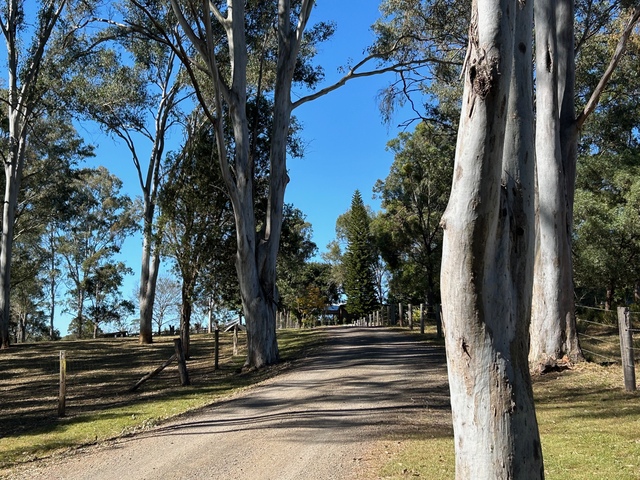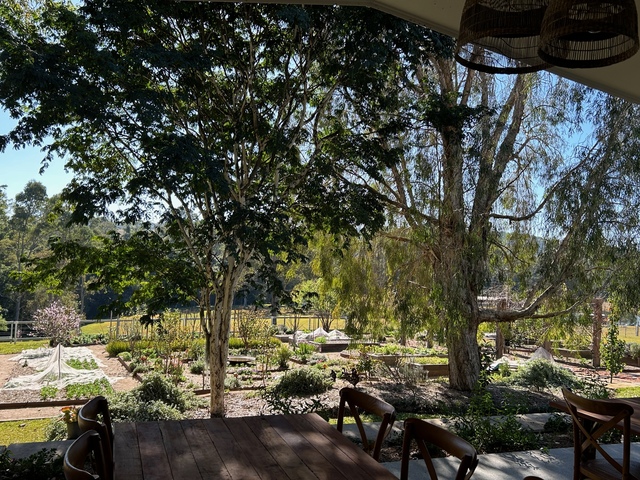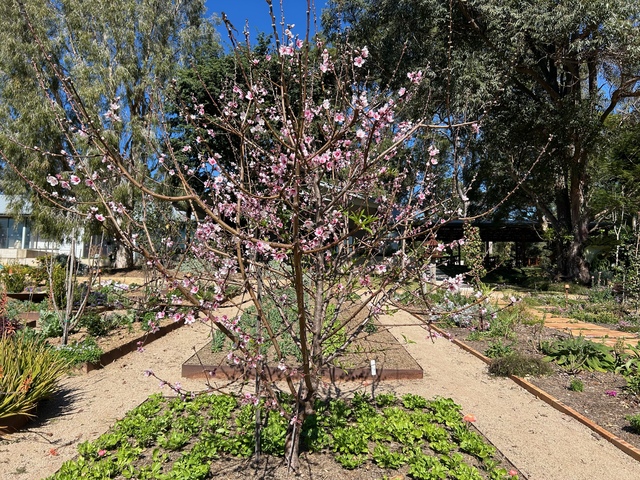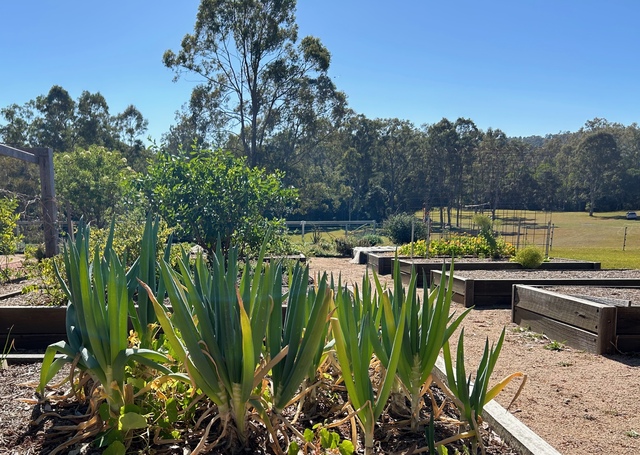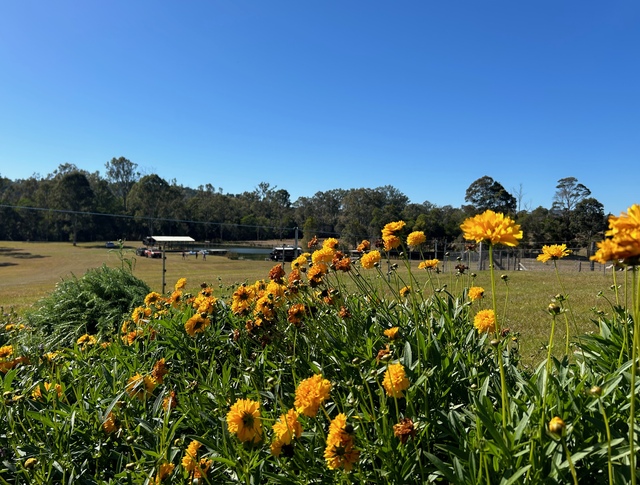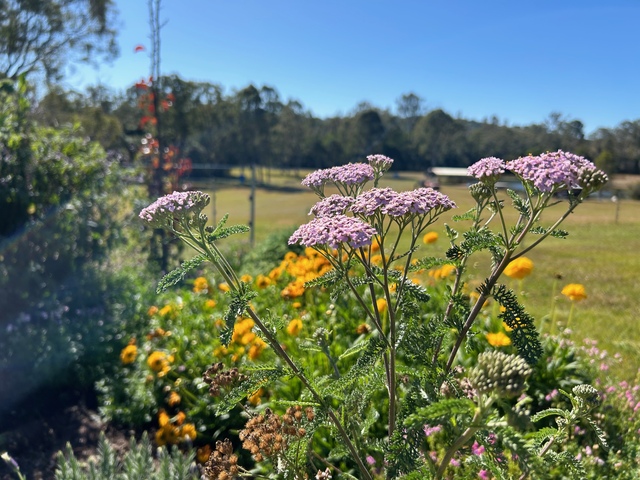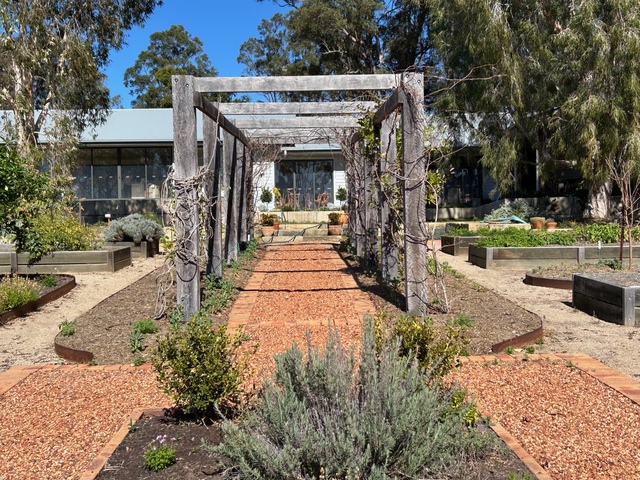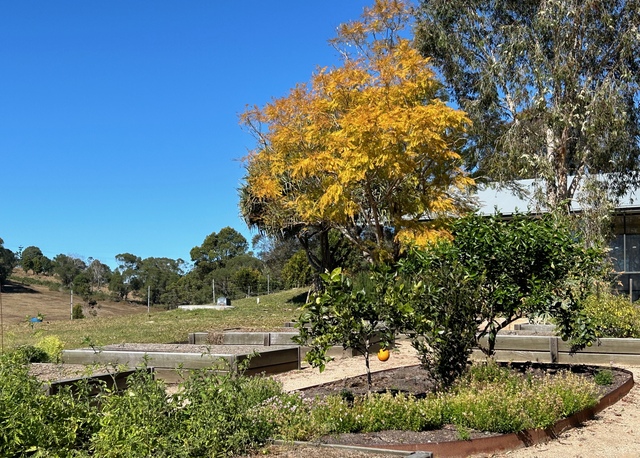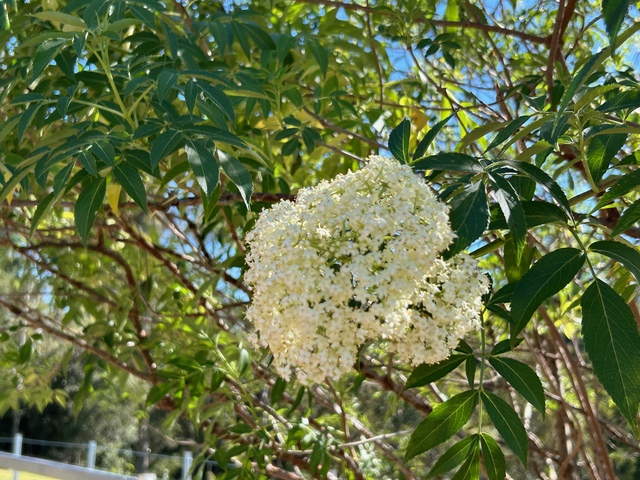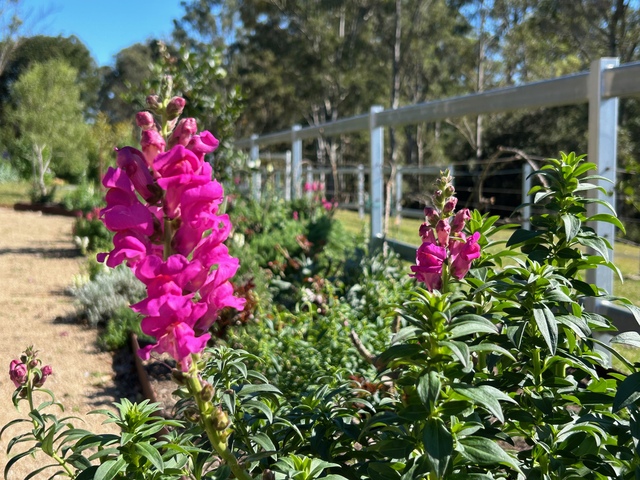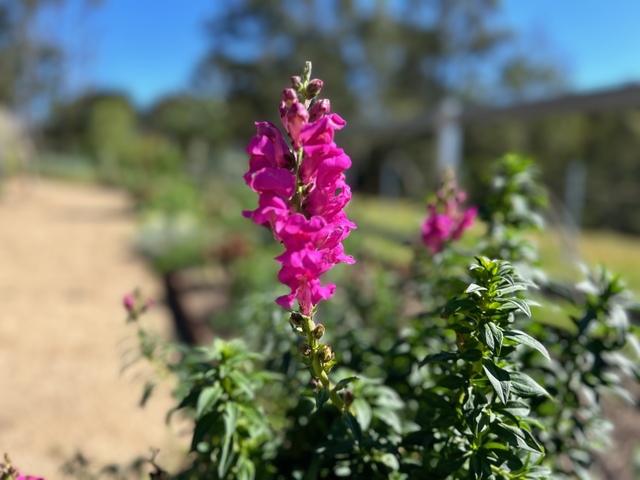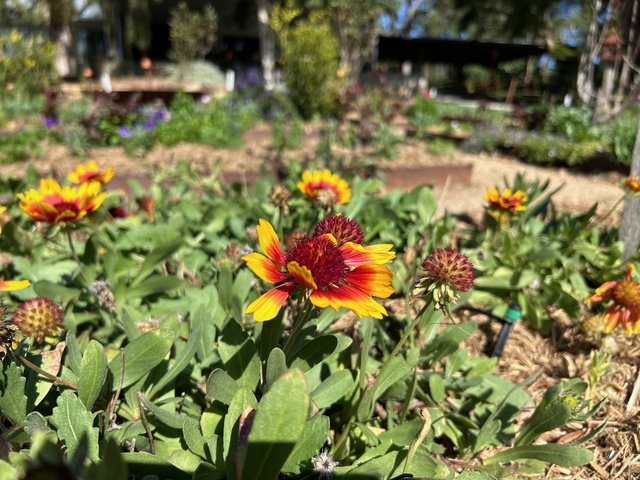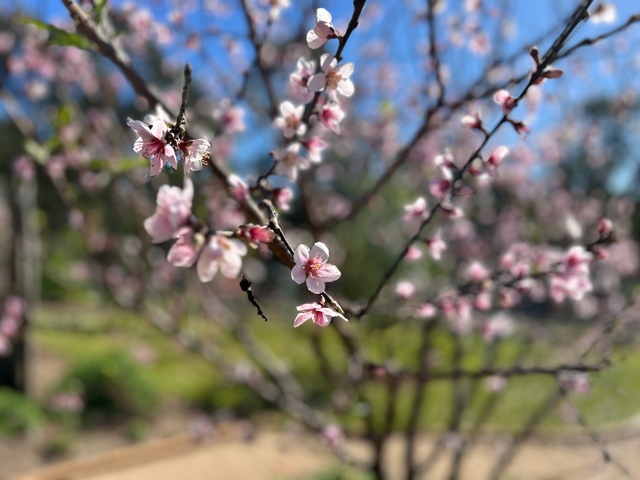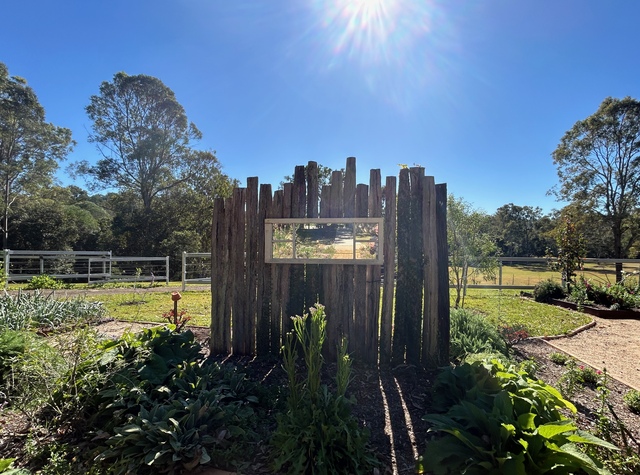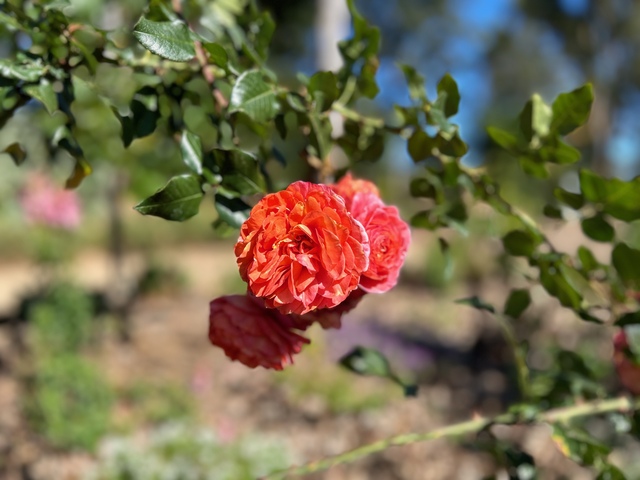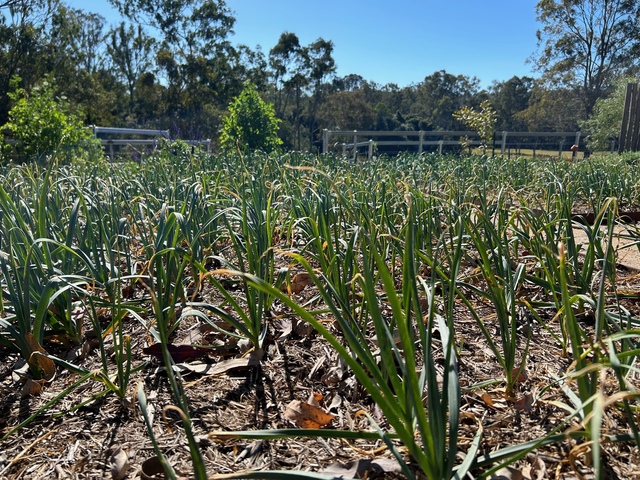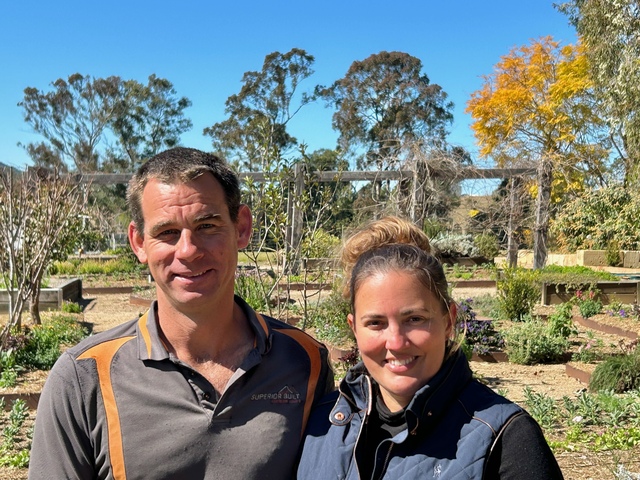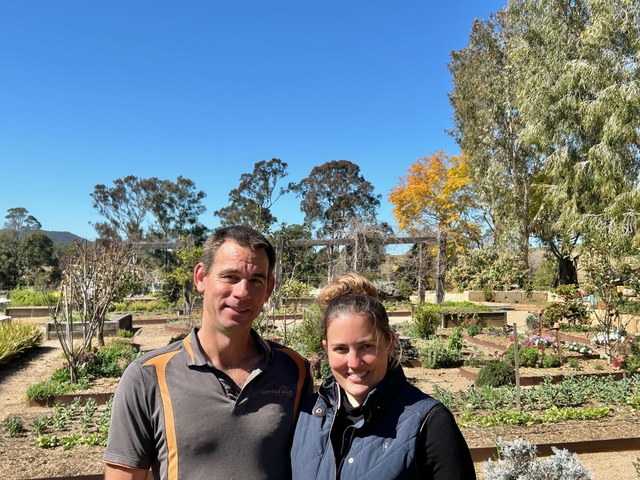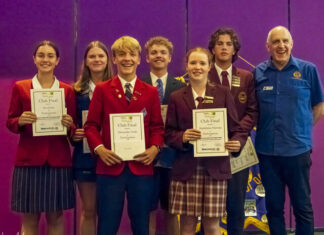“Our dream for years was to have space for our children to grow up, teach them the basics of life and give them an understanding of how our food is grown … not found in a packet from the supermarket.’’
Now that dream has become a reality for Hayley and Dwayne Deans at their Kybong property, Woollahra Homestead.
Woollahra is the meaning for meeting ground or a sitting down place.
That is where I caught up with Hayley on a sunny mid-winter morning to discuss their vision for this special piece of the Mary Valley.
It is such a tranquil setting – tall gum trees, the gentle slope of the land rising to steeper terrain on either side of the valley.
I felt this was probably where the Traveston Dam was going to be located.
“I think the dam wall was going back over this side,’’ Hayley said, “but we are more in the overflow area.’’
Woollahra Homestead is a 40-acre farm practising regenerative farming methods.
The intention is for it to be a place to connect with nature, to provide a farm stall and paddock-to-plate experience.
Hayley and Dwayne have been on quite interesting and diverse journeys that brought them to Woollahra.
“I grew up on a farm,’’ Hayley said.
“My grandparents and my dad had land at North Arm, and then we sort of separated from that and went into a little bit more of suburbia.
“Our dream was always to have some sort of land for our kids.
“I always sort of have loved gardening – I’ve always had a very green thumb, like my dad, and had a dream of something like this.
“We had sold our home at Mt Ninderry and were looking for another place to buy. It was during Covid and we were getting desperate because you couldn’t find anything.
“Then my husband saw this place and he said that it has lots of potential. Yet I was thinking: ’I will not be going here’.
“I dragged my feet but as soon as we opened up the door I thought, this place actually does have potential… but I wasn’t going to say that.
“Then, a week later, we decided to go ahead. And I’m so glad we did.’’
While the property slopes to the north, there is a lot of flat land and even what’s up the back of the house and shed is not unmanageable.
“The fellow who owned the land was a cattle farmer,’’ Hayley said, “and he had a station out west, so this was a holding property for some of his stock.
“We basically put an offer in. It got accepted, we moved out here, and then we started planning.
“The first thing that went in was the dam down there.’’
It’s where they are establishing an on-property camping area.
The property is on Traveston Creek which runs part-way around the boundary.
“Basically everything you see, we have established,’’ Hayley said, “except for the stock yards that are up here.
“I am very passionate about our environment, especially where food is concerned – how it is grown, and the future of my children and my grandchildren.
“We are focussed on organic or regenerative farming. We don’t use any chemicals on this farm.
“It’s a lot of labour but we produce our own compost out the back and have a worm farm.’’
Hayley and Dwayne use their cattle for the composting.
They are an important part of the process because of the way their digestive systems work – the manure is so full of goodness.
One of the best ways to improve agricultural sustainability is by developing and using effective ruminant livestock grazing systems.
“We use that in our composting and on our gardens as well,’’ Hayley said.
“We are at the stage where I can’t do it all.
“We need to be able to expand as there are other projects we have in mind. It is then we will have to get people to come in and help.
“The vision is to expand our gardens because we grow cut flowers as well. We’re doing combinations of flowers and vegetables.
“We’ve orchards scattered around everywhere, and we’ve also got a section down the back which is for ’ugly things’ like potatoes, pumpkins, vines and all that kind of stuff .
“We want to show people – especially younger generations – that we can farm using the old methods successfully without having to use all the pesticides.
“We want to educate children that our food isn’t grown in a packet in a supermarket.
“That it’s something you can do at home because I feel all the families have got a backyard or a little farm.’’
That is a way to help change they way we have been treating the soil – having it open to degradation of nutrition as well as erosion.
“We need vegetation or cover crops to keep the nutrients in there – or that soil structure – because every time you plough over it you lose the structure and the microbials. They need the moisture.
“We would like to eventually help children understand how important worms are and how it all starts with the soil … from the ground up.’’
Woollahra Homestead has about 16 droughtmaster cattle crossed with angus, and a couple of purebred angus. They also have a few dorper sheep.
Hayley attributes much of her interest in farming and gardening to her grandmother.
“Helen loves gardening and my dad Tony is a big green thumb. My mother-in-law Carol is also an avid gardener … she helps me out a lot in the garden.’’
Dwayne was born in Tauranga, on New Zealand’s Bay of Plenty, and is a marine engineer by trade.
He moved to the Sunshine Coast at age four, and lived at Mooloolaba. That is where he moved into the marine engineering side of things.
Dwayne works from home and does boat building, also a lot of fabrication and that includes manufacturing car parts.
“We had a building company – Superior Built,’’ Hayley said. “We did a lot of our own homes and were entered in the HIA building awards.
“I have a background in building and as a designer. We built this place … hopefully it’s our last one.’’
Walking through the gardens, Hayley said that basically everything you see has been planted by her. Everything is symmetrical, the garden plots raised slightly, the edging is precise and sustainable.
They will be looking at retaining water on the property. There are some areas down the hill they will plant flowers and crops to slow the run-off.
As well as establishing a farm-gate flower and vegetable outlet they will take the produce to community markets but also use the flowers for weddings and parties.
“We’ve had a few days where we opened up pop-up stalls here on the farm and we were overwhelmed,’’ Hayley said.
“Every time we’ve done that, the number of people that came in meant we sold our produce that we also turn into either relishes, sauces or something like that.
“There’s nothing like a fresh-picked lettuce and herbs.
“I had garlic in every single bed at the start but the consistent rainfall in the past couple of years proved too much. So I’ve had to go back to start from square one again.
“We are trying to make it local garlic instead of from overseas. People generally want local food … to experience the agriculture, the local cuisine.’’
“Localised produce serves as a reminder that food is to be shared and enjoyed.
“We’re trying to support everyone in this area, and if we are low on the produce that we are growing then we utilise other local produce.
“This area has so much potential.’’
The garden includes carrots, tomatoes, lettuce, cucumbers, beetroot, radish, pumpkin, sweet potatoes.
The blossoms are already on the peach trees, and there are also citrus trees, apples and figs.
What Hayley has learned so far is that farming can be challenging.
“It is hard work. By fighting against nature you will never win. You need to work with it.
“We’ve got a lot of roses … more than 120 plants.
“There have been a lot of aphids but we went for beneficial plants as companion planting to create beneficial insects.
“They moved in, and cleaned up all the aphids. We let them do their thing instead of spraying.’’
“There are beneficial plants underneath the foliage and flowers. They attract the beneficial insects.’’
When Hayley and Dwayne moved to Woollahra there was virtually no wildlife because dogs had been on the property before that.
Since then the wildlife has moved back. There are koalas that come and go, and there is a variety of birdlife – king parrots, different types of kingfishers – that are all doing their part.
“We’ve got bees,’’ Hayley said. “We produced some honey last year – it tasted amazing because of all the blossoms.
“It’s great to see the amount of pollination we’ve got. There’s native bees as well.
“When we came here there was barely any pollination so we put a beehive out the back in our orchard.
“We’ve had so many setbacks – we’ve had hail that wiped out nearly all of our garden.
“We’ve had bugs. We’ve had birds, we’ve had hares, bandicoots. We’ve had everything, so everything has set us back.’’
Even so, Hayley’s biggest tip is patience and perseverance.
“Just work with nature. We just keep going. I think the biggest thing is not to give up.
“A lot of people would give up once you’ve done it four, five or six times over.
“There has been flooding, drought – so many things have happened in this region in a short space of time. We could have given up.
“There have been cows that got into the orchard, horses that have escaped and eaten all of our stuff. You know, just things like that.
“But I’ve kept persevering and then you see the rewards. In a few months time this place is going to be absolutely covered in colour and produce … and it’s going to be awesome to sit here and be able to look at all the hard work.
“We have an amazing slice of paradise that we would like to share with others.
“From the moment we purchased our farm to now, let’s just say it’s unrecognisable – we certainly have added our touch.
“Our farm is regenerative, uncertified organic with great diversity, the way all farms should be.
It’s hard work starting as a learner and after years of reading and reading we are finally progressing. It’s extremely rewarding knowing that what you are eating is the best it could be, all starting from the ground up.’’
Hayley and Dwayne’s philosophy and vision is something we could all aspire to.
A way of life that is defined more by a sense of health and community rather than convenience.

